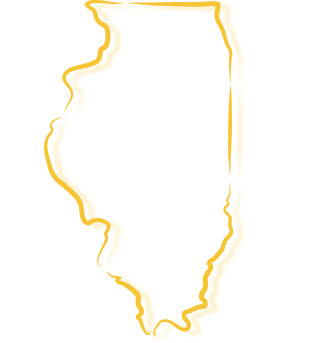Inattentiveness While Driving Risks Grave Injury

By Zane T. Cagle | July 8, 2019 | Car Accidents
In most American cities, our streets are congested, our highways are overcrowded, and our commutes are long and stressful. Many drivers choose to pass the time while waiting in traffic by reading, texting, applying makeup, or even shaving. All of these activities—and many more—qualify as distracted driving. Most of us think of texting as the most common form of distracted driving. While this is true, there is much more that distracts drivers beyond cell phone use, some of which you may not even know about—and some of which simply constitutes a failure to pay attention to the demands of driving a vehicle.
What Is Inattentive Driving?
Inattentive driving is the act of driving a vehicle while also engaging another activity that takes your attention off the road. These activities include, but are not limited to:
- Texting
- Talking on the phone
- Selecting songs/playlists and manipulating the navigational system
- Eating
- Doing your makeup
- Shaving
- Dealing with unruly children
- Driving under the influence of alcohol or drugs
- Drowsy driving
- Daydreaming or otherwise driving on autopilot rather than actively observing the surroundings
This list is by no means all-inclusive, and many people are surprised by the frequency of daydreaming and not actively paying attention. We all think of texting as classic types of distracted driving. However, a recent study shows that acute sleep deprivation is the cause of about 7 percent of car accidents in the United States. In fact, individuals who drive with less than four hours of sleep are 15 times more likely to cause a car accident than drivers who receive seven to nine hours of sleep before driving.
Driving a vehicle while getting less than four hours of sleep is equal to having a blood alcohol content of 0.12, which is 1.5 times the legal limit. Clearly, driving without being focused on the task at hand can have dire consequences.
Deciding to engage in distracting behavior or just zoning out while driving endangers not only your life but also the lives of your passengers, pedestrians, and people in other vehicles. Drivers play active and integral roles in ensuring the safety of everyone on the roads. If you find yourself the victim of an accident caused by someone who was driving while distracted or not paying attention, you should take several steps to stay safe.
There are three types of distracting activities:
- Visual. A visual distraction occurs when a driver takes his or her eyes off the road. This includes looking at another accident, a sign, or a phone.
- Manual. A manual distraction occurs when a driver removes his or her hands from the steering wheel. Manual distractions include eating, doing makeup, and changing the radio.
- Cognitive. A cognitive distraction occurs when a driver’s mind is not focused on driving.
Some distractions encompass all three of the above-listed types, like texting while driving. When texting and driving, drivers are looking at their phone and not the road, while holding their phone and not using both hands on the steering wheel, while reading a text and thinking about a reply instead of thinking about traffic and their surroundings. Even merely listening to a thought-provoking podcast can take a driver’s mind off of driving. These are dangerous situations that put everyone else on the road at risk.
Steps to Take After an Accident
When you’re involved in a car accident, your first concern should be your safety. You should follow the following steps:
- Call 911. Even if there seem to only be minor injuries, you want to have a police record of the accident. While the police officers may not assign fault to the other driver in their report, they will diagram the scene and provide statements from drivers, passengers, and witnesses, which will prove helpful to your insurance company and your personal injury lawyer in determining fault. Calling 911 immediately also assists with the traffic around your crash and may prevent crashes around your after your crash.
- Get medical attention. Again, even seemingly minor injuries can turn severe. Following an accident, your adrenaline is pumping, and you’re probably not feeling all of the pain. You could be missing symptoms that a medical professional won’t miss. You also want documentation of your injuries, so you can ensure that the at-fault driver or his or her insurance company winds up paying your medical bills.
- If you’re able, take pictures. But only if it is safe to do so. You want to get pictures of your car, the other car, the accident scene, and your injuries. Pictures can help us determine the value of your personal injury claim and provide us with images taken moments after you suffered the injuries to establish their severity.
- Exchange contact information with other drivers, passengers, and witnesses. Having this information already will help us prepare your personal injury claim. Witnesses don’t always stick around for the police to take their statements, so it’s important that you get their contact information, so we can speak with them later.
- Do not accept blame for the car accident. This may seem obvious, especially if it wasn’t your fault. But simply saying that you’re sorry for what happened could be interpreted as accepting blame for the accident. Doing this may cause a court to hold you partially or fully at fault for the accident and liable for some of the associated damages.
- Call your insurance company, but do not give a statement. This is an important step; you need to alert your insurance company about the accident and inform the company that the accident wasn’t your fault, but do not provide a recorded statement. Despite what many people think, your insurance company isn’t always looking out for your best interest, but your attorney is.
- Call a car accident lawyer. Find someone who has helped many clients just like you who have sustained serious injuries in car accidents that weren’t their fault. Since you did not cause your accident, you should not bear responsibility for any of the associated costs.
How to Prove That Distracted Driving Caused the Accident
Some causes are easier to prove than others. In every instance, however, having a skilled and trusted personal injury lawyer by your side can help. Look for a legal team that understands how to prove to a court that someone violated the rules of the road, and that negligence resulted in a car accident that injured you.
For example, a car accident attorney may subpoena the defendant’s mobile records in an effort to prove that he or she sent or received a text seconds before the accident occurred, and may also review 911 audio recordings. Many witnesses who call in an accident will state that a driver was on his or her phone or engaging in some other distracting activity.
This is not an easy process and will require the keen eye and experience of a seasoned personal injury lawyer.
How to Avoid Distracted Driving
While there is no certain way to avoid being hit by a distracted driver, you can make sure you’re driving defensively. You can also take steps to ensure that you refrain from driving while distracted.
If you’re constantly itching to grab your phone while you’re driving, put it somewhere you can’t reach, like in the back seat or the trunk. The temptation may still exist, but you’ll be physically unable to get to your phone, thus removing the potential for that particular distraction.
If you are drowsy, don’t drive. Just like it’s cheaper to take a cab than defend a DUI, it’s cheaper to take a cab when you’re sleepy than it is to cause an accident.
It’s also good to practice mental focus. Make sure when you’re driving, your focus is the road. Everything else can wait. Cars make our lives easier and make it more convenient to see the ones we love. But they are also large, heavy, and potentially deadly. Keep your focus and your attention on the road, so you arrive alive. By staying focused, you may even be able to avoid an accident with another driver who is distracted because of your faster reaction time.
Common Injuries
The injuries resulting from an inattentive driver are as varied as the causes of the accident. Potential injuries include the following:
- Cuts and bruises
- Whiplash
- Concussions and other traumatic brain injuries
- Broken bones
- Spinal cord injuries
- Paralysis
- Death
Inattentive driving can cause injuries, just like other types of car accidents. The difference is that most distracted driving accidents are completely preventable. They usually occur purely due to the reckless and negligent behavior of a distracted or inattentive driver.
Distracted driving accidents tend to involve serious injuries. A driver who fails to pay attention may never actually apply the brakes prior to colliding with another vehicle, which will likely result in a serious accident and injuries.
Types of Compensation
Many people don’t like the idea of filing a lawsuit against another individual, even if he or she caused them great harm. But when other drivers act in such a negligent way that causes you to suffer injuries, you deserve to hold them accountable and receive compensation for your injuries. Generally speaking, the actual claim is not against the negligent driver personally but against the negligent driver’s insurance carrier.
The damages you may recover will vary depending on the type of injuries that you’ve sustained and other factors. We will fight to get you compensation for:
- Pain and suffering
- Lost wages
- Loss of companionship
- Lost earning potential
- Emotional distress
- Medical bills
- Rehabilitation costs
We will fight to get you the compensation that you need to get back on your feet. You have enough to worry about with your physical and emotional recovery. You need an advocate to take the stress of the legal complexities off your shoulders, so you can focus on what matters: your health.
Settlement Offers
If the at-fault party’s insurance company determines that the other driver caused your car accident, that insurance company will contact you. That auto insurance carrier will likely offer you a low initial settlement. Insurance companies understand that injured victims have bills piling up, may be out of work, and likely need quick cash. The at-fault party’s insurance company will prey on you and urge you to sign the settlement, dangling access to quick cash in front of you as motivation. Don’t sign anything without first speaking with an experienced personal injury attorney.
The initial settlement offer likely won’t include a calculation of all of your costs; it may not even cover all of your existing medical bills, let alone future costs. Furthermore, signing a settlement offer will preclude and forever bar you from bringing any further claim against the involved insurance company for this accident, which means you effectively waive your right to sue to get the full value of your claim.
We can’t stress to our clients enough the importance of having the right advocate on your side to aggressively fight for you. A negligent driver caused your injuries, and you shouldn’t be on the hook for any of these costs.
A car accident lawyer will work with you to create an accurate calculation of both your existing and future bills. Depending on the severity of your injuries, your future medical bills and rehabilitation costs may grow excessive. You don’t want to find yourself in a worse financial situation than you were before the accident. That’s why it’s important to speak with a seasoned, trustworthy personal injury lawyer.
Contact a Car Accident Attorney for More Information
Without the knowledge and support of an experienced and skilled personal injury team guiding you through the legal complexities of your claim, you risk losing out on the opportunity to receive compensation for the full cost of the injuries that you’ve suffered. Medical care is expensive and piles up quickly. It’s possible to find yourself in a worse financial situation after your accident if you don’t have adequate legal representation.
A seasoned automobile accident law firm will guide you and stand beside you every step of the way, dealing with the legal complexities of your claim while you focus on your recovery. Look for someone whose goal is to settle your case for a fair amount, not a low initial offer. You need the money, and settlement speeds up the process. But if the insurance company refuses to offer a fair settlement amount, look for a car accident lawyer who is fully prepared and ready to take your case all the way to trial, if necessary. Finally, most car accident lawyers offer free consultations, and only get paid if you recover compensation.
Contact Us Today
The Cagle Law Firm serves accident and injury clients throughout St. Louis and the greater St. Louis metro area, including St. Louis Counties of Chesterfield, Wildwood, Eureka, Ladue, Olivette, Clayton, Kirkwood, Fenton, Affton, and Jefferson Counties of Arnold, High Ridge, Antonia, House Springs, and the eastern Missouri and southern Illinois communities. If you or your family needs legal assistance with your personal injury case, call The Cagle Law Firm at (314) 276-1681 or use our online contact form to request a free case review or get more information.
Areas Served
The Cagle Law Firm – Missouri
The Cagle Law Firm – Illinois
The Cagle Law Firm – Kentucky
CONTACT THE CAGLE LAW FIRM TODAY
Request your FREE CASE REVIEW today by calling (314) 276-1681 or by sending a message through the site contact form. Your contact info stays private and is only used to reply to your inquiry.
Whether you need information about a new injury or existing injury, our lawyers answer your questions with no-risk and no followup marketing.
Free Consultations and Case Reviews
Questions? Ask An Attorney
Fields marked with an * are required
Copyright © 2025 St. Louis Personal Injury Lawyers | The Cagle Law Firm. All rights reserved.
Disclaimer | Site Map | Privacy Policy
Get a free case review with St. Louis' best personal injury lawyers to help you win top compensation





